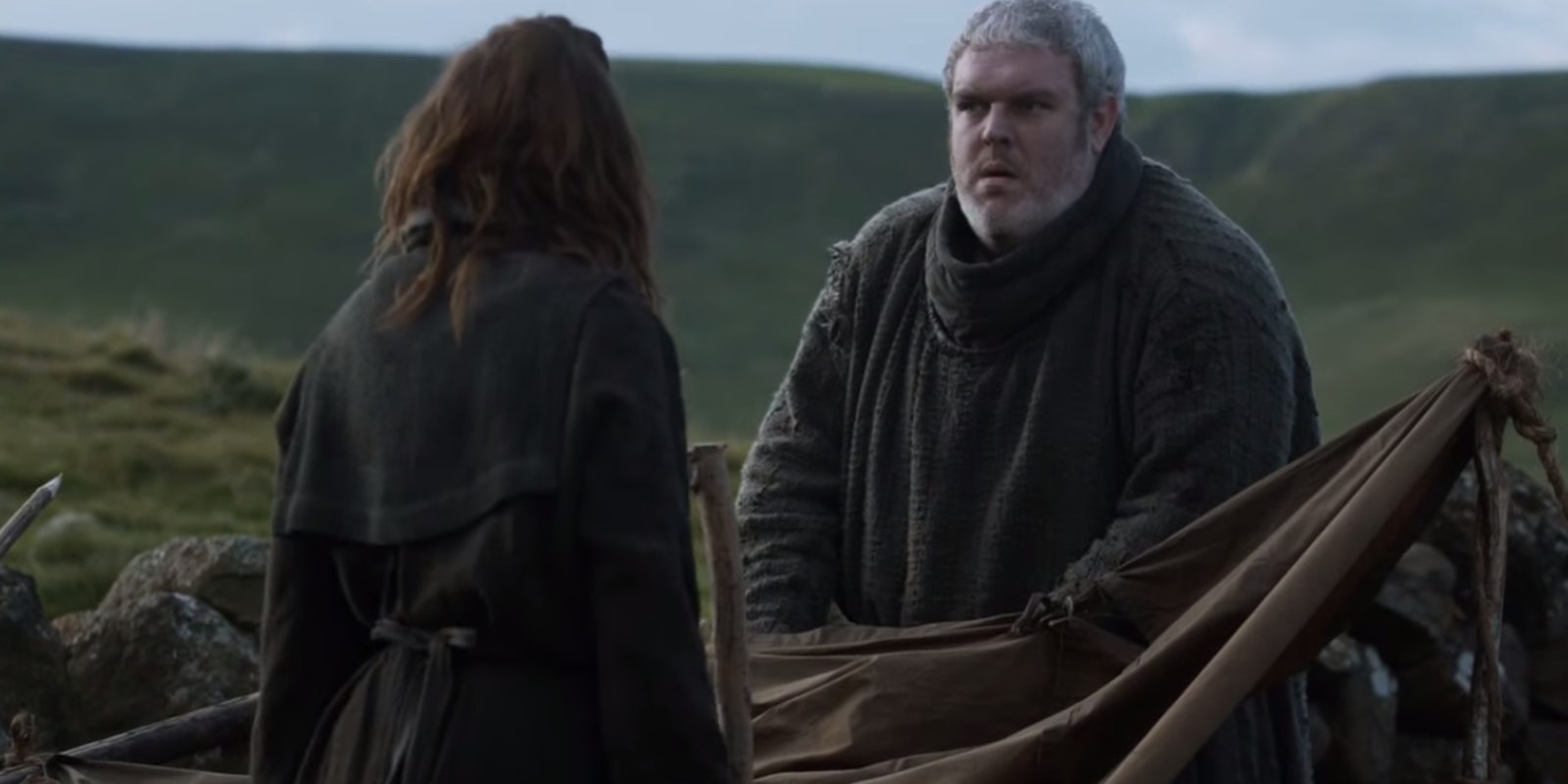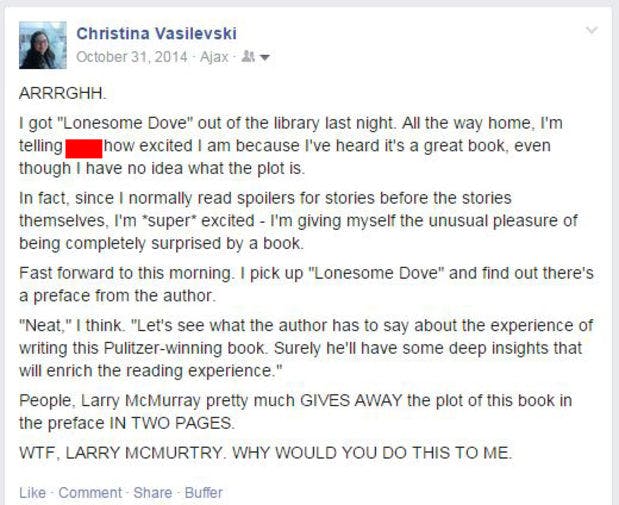Spoiler warnings: They may be in this article.
In a world where the phrase “spoiler warning” has now become a fact of life and people use special markups online to prevent readers from inadvertently learning certain plot points, I consider myself an anomaly.
I like spoilers, goddammit. In fact, I actively seek them out. I’ll go to wikis and click link after link into an endless rabbit hole. I’ll go to pop culture sites and read episode recaps. I’ll go to Tumblr and watch repeatable GIFs of important moments.
I recognize I’m a weirdo here. The phrase “spoiler warning” is proof enough. So why do I like spoilers? For a bunch of reasons.
I’m lazy.
I’m not gonna lie—if something is a cultural juggernaut and requires that I consume a backlog of past storylines to stay up-to-date, I take the easy route by reading spoilers. Game of Thrones, Doctor Who—hell, even the collected works of Jane Austen—have all spurred me to trawl through Wikipedia, YouTube, and various subreddits.
Game of Thrones is a particularly good example of this. Each book is the size of a doorstop, and I personally dislike reading multiple books by the same author in a row. If I dedicated myself to catching up on the books (all 5,462,788 pages of them) to gain a deeper understanding of the show, it would take me years. And when there are so many insightful episode recaps out there on sites like the A.V. Club and io9, and so many YouTube videos, and so many people talking about how Lady Olenna is totally the shit—come on, how can I say no? The information is right there; in some ways, it’s a form of preemptive protection.
In fact, let’s make a Law of the Necessity of Spoilers. If a media property 1) is popular and 2) requires a large outlay of effort for newbies to get into it so that they can be conversant with all the other people who make it popular, then spoilers have an obvious value.
It helps me understand storycraft.
Another reason I read spoilers is to understand whether certain narrative choices make a story satisfying. If I know that so-and-so is actually a double-agent and betrays the main character right before the climax, I can count the various hints and red herrings along the way. Sometimes, the pleasure of that build up—of knowing what’s coming—is the best feeling.
I like spoilers, goddamnit. In fact, I actively seek them out. I’ll go to wikis and click link after link into an endless rabbit hole.
If these hints and red herrings add up to make that secret reveal logical, then I think that the spoiler was worth it. However, if that revelation turned out to be not-so-amazing in context, I can feel less blindsided.
For example, when I watched The Dark Knight Rises in the theater, I remember thinking that the reveal that Marion Cotilliard’s character was actually Talia Al-Ghul was a big load of bull. But that was because I didn’t know what to expect. (It was also partly because the cast and crew denied the rumors about the true identity of her character many times, but that’s another story for another day.)
I honestly believe that if I had known going in that her character was Talia Al-Ghul, it would have made me appreciate The Dark Knight Rises more (or at least feel a little less betrayed). As it is, I haven’t seen it once since I saw it in the theater, while I’ve watched The Dark Knight and Inception at home multiple times.
Also, I’m a big wuss.
Finally, I need to admit that books and movies easily affect my mood. There have been several occasions in the past where reading a book has placed me in a state of anxiety over the characters and the plot that was relieved only when the book was over. (By the way, if you ever want a book that can induce a respectable amount of dread and hopelessness, A Canticle for Leibowitz is just the thing.)
I’ve even had dreams about books I’m in the process of reading—dreams where the names of the characters and places within it cycle endlessly through my head. If hitting up Wikipedia can alleviate that anxiety and help me get a good night’s sleep, I’ll take it even if I learn that a beloved character dies in the end.
Yes, this has come back to bite me.
However, all is not well in the land of those who give no fucks about spoilers. There is the occasional time when I recognize the value of not knowing how things turn out.
For example, I read the Wikipedia summary for Gone Girl before I read the book. Considering that the twist is pretty much the whole point, I fully admit: That was a dumb idea.
And then there are the few times where I’ve tried to keep myself unspoiled regarding a book I was looking forward to, only to have this happen:
There definitely have been times where I’ve been spoiled for things that I wanted to find out on my own, especially if they’re books or TV shows that I plan on enjoying in the near future. But overall, seeking out spoilers is a habit that’s so engrained in me that it will be hard to break.
On a final note, I wrote this the day after season 5, episode 9 of Game of Thrones aired and I read all the recaps and watched that really sad scene, so: Fuck you, Stannis. Seriously.
Screengrab via Game of Thrones/YouTube



